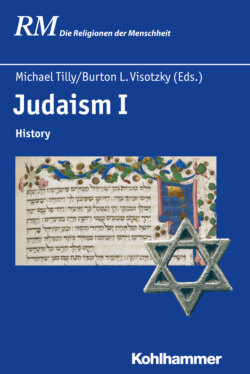Читать книгу Judaism I - Группа авторов - Страница 7
На сайте Литреса книга снята с продажи.
1 Die Wissenschaft des Judentums
ОглавлениеDr. Leopold Zunz (1794–1886) began the modern study of Judaism by convening his Verein für Cultur und Wissenschaft der Juden (the Society for the Culture and Critical Study of the Jews) exactly two hundred years ago, in late 1819 in Berlin.3 Although the Verein was small and lasted but five years before disbanding, it included such luminaries as co-founder Eduard Gans, a disciple of Hegel, as well as the poet Heinrich Heine.4 The scholarly Verein failed to gain traction in the larger Jewish community. None-the-less, Zunz and his German Reform colleagues introduced an academic study of Judaism based upon comparative research and use of non-Jewish sources. Their historical-critical approach to Jewish learning allowed for what had previously been confined to the Jewish orthodox Yeshiva world to eventually find an academic foothold in the university.
In that era, history was often seen as the stories of great men. Spiritual and political biographies held sway. Zunz accepted the challenge with his groundbreaking biography of the great medieval French exegete, »Salomon ben Isaac, genannt Raschi.« The work marked the end of the Verein and was published in the short-lived Zeitschrift für die Wissenschaft des Judenthums.5 The monographic length of the article and its use of what were then cutting-edge methods ironically helped assure the journal’s demise. Further, the attempt to write a biography that might assay to peek behind the myth of the towering medieval figure, assured that the orthodox yeshiva scholars who passionately cared about Rashi would find the work anathema. Nevertheless, the study was a programmatic introduction not only to Rashi, but to the philological and comparative methods of Wissenschaft des Judentums. It would set a curriculum for critical study of Judaism for the next century and a half.
Zunz solidified his methods and his agenda in 1832, when he published Die gottesdienstlichen Vorträge der Juden, historisch entwickelt (The Sermons of the Jews in their Historic Development).6 Here, Zunz surveyed rabbinic exegetical and homiletical literature, and by focusing on this literature, he conspicuously avoided both the study of the Talmud and Jewish mysticism. Zunz began his survey in the late books of the Hebrew Bible and continued to review the form and content of the genre up to German Reform preaching of his own day. His work was not without bias. Zunz separated what he imagined should be the academic study of Judaism from both the Yeshiva curriculum—primarily Talmud and legal codes—and from the Chassidic world, which had a strong dose of mysticism.
Zunz’s acknowledgement of the mystic’s yearning for God came in his masterful survey of medieval liturgical poetry, Die Synagogale Poesie des Mittelalters.7 Indeed, Jewish mysticism only finally came to be acknowledged in academic circles a century later by the efforts of Gershom Gerhard Scholem (1897–1982). Leopold Zunz essentially set the curriculum for the academic study of Judaism until the horrible events of World War II irreparably changed the course of Jewish history and learning. Even so, Zunz’s agenda still affects Jewish studies to this day and has influenced the content choices of these volumes.
